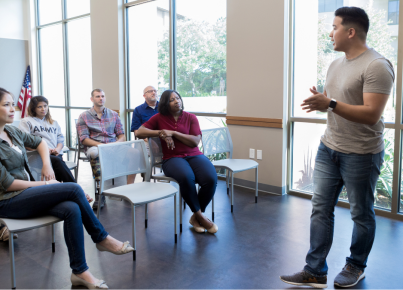The brave souls who’ve served our nation have selflessly faced harrowing risks to preserve the liberties and safety we cherish. Upon their return to civilian life, it’s paramount for them to rely on robust protection and privacy of their data. Prioritizing cybersecurity for these respected veterans is crucial in showing appreciation for their service and safeguarding them from digital dangers threatening their Protecting Veteran Personal Data.
Safeguarding veterans’ sensitive details
Due to its delicate and specific nature, there’s a pressing need to defend our veterans’ private information. Departments like the Veterans Affairs (VA) receive veterans’ trust to handle details ranging from social security digits to medical histories, service records, and financial matters. Mishandling this information could lead to improper uses, such as privacy violations or identity theft.
Strengthening cybersecurity measures significantly decreases data exposure risks, improving veterans’ experiences with healthcare, benefits, and various services. Beyond legal compliance, this protection is a testament to our nation’s loyalty to those who’ve physically ensured ours.
A key action in protecting veterans’ information involves implementing thorough cyber defenses across all systems managing that data. To fend off cyber threats, we must persistently repair any software flaws and employ encryption to guard data in storage or transit, keeping it out of reach from unauthorized parties.
Upgrading cybersecurity also means ongoing education in cyber-awareness for VA staff and their colleagues. As human mistakes often lead to security lapses, training employees to spot and hinder potential cyber threats becomes critical.
Moreover, multi-factor authentication (MFA) should be standard in protocols for veterans’ data access. MFA heightens security by adding multiple verification steps to prevent improper access.
Veterans are also essential in defending their data. Equipping them with the necessary cybersecurity awareness and heightened vigilance enables them to take part in their information’s defense actively.
Additionally, the VA needs to work hand in hand with cybersecurity specialists regularly, employing AI and machine learning to detect and mitigate threats rapidly. Such proactive defense helps to avert potential damage.
It’s essential to have meticulous and evolving plans for responding to data breaches, ensuring veterans get prompt aid and support if their data is at risk. This includes immediate alerts, options for credit monitoring, and strategies to prevent similar issues from arising again.
Being transparent with veterans about how their information is protected builds trust and shows a firm dedication to their digital privacy. Honoring their sacrifices means upholding strict and current data protection laws, executed with care.
In summary, guarding veterans’ Protecting Veteran Personal Data requires constant vigilance and investment in state-of-the-art cybersecurity. Cultivating a protective ethos amongst the organizations handling veterans’ data and involving the veterans themselves in this effort not only enhances their experiences but also satisfies the respect and commendation they rightfully have earned. Therefore, making cybersecurity a top priority for veterans is not just essential; it represents our dutiful commitment to those who’ve guaranteed our country’s safety.







You must be logged in to post a comment.